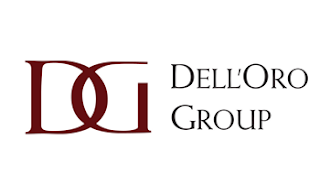
The high-level technology trends that have shaped the radio access network (RAN) capex cycles over the past 30-plus years are expected to play a significant role in determining the nature of RAN investments over the coming decade, according to a new report from Dell'Oro Group. In addition, the availability of more spectrum, in combination with the evolving scope of the RAN forms the basis for the higher-than-historical growth rate projections – Fixed Wireless Access is already boosting the RAN market and enterprises are next. Following the 1 percent CAGR between 2000 and 2020, global RAN is projected to grow at a 2 percent CAGR between 2020 and 2030.
“While we can with fairly high confidence level assume that 6G will be ready by the end of the decade, it is still early days to identify the underlying impetus that will characterize the initial 6G deployment phase,” said Stefan Pongratz, Vice President at Dell’Oro Group. “In this long-term forecast, the base case scenario is that the 5G cycle will be longer than the LTE investment phase, while 6G will start accelerating in the outer part of the forecast period to support the consumer MBB usage scenarios, closely emulating the 5G ramp ten years prior with wide-band sub-7 GHz macros delivering the most compelling RAN economics,” continued Pongratz.
Additional highlights from the new RAN 2030 Advanced Research Report:
- Sub-7 GHz 6G Revenues to reach $10 B to $20 B by 2030.
- Operators and enterprises will continue to embrace the movement towards virtualization, openness, and automation. At the same time, the RAN is not the core and the transition will be gradual. Even with 6G, we foresee that a significant portion of the RAN market will be based on custom silicon and proprietary interfaces – Open RAN is projected to account for more than 20 percent of total RAN by the end of the forecast period.
- Although private LTE/5G adoption has to date been underwhelming, we still envision a world in which enterprises utilize both the unlicensed and licensed spectrums to solve their connectivity needs. Global private wireless RAN revenues are projected to approach $2 B by 2030.












